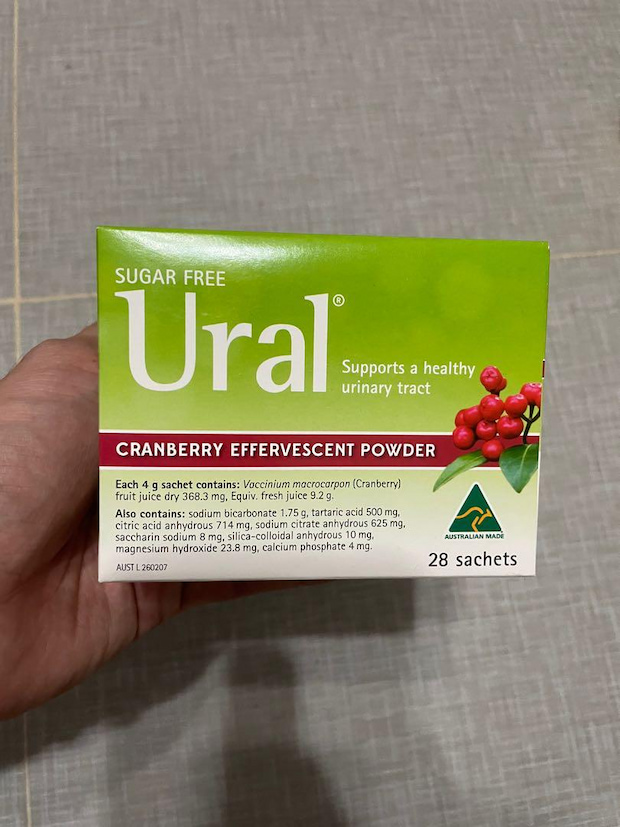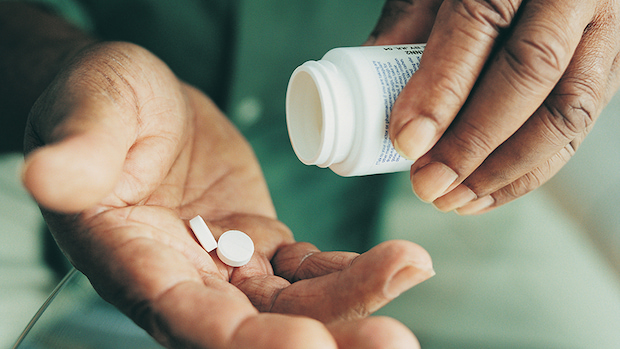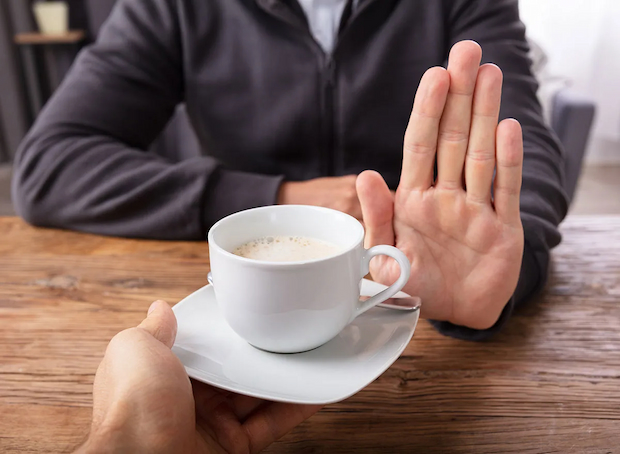How to Treat a Urinary Tract Infection (UTI) Quickly and Effectively
A urinary tract infection (UTI) can affect any part of your urinary system, including the kidneys, ureters, bladder, and urethra. The bladder and urethra are the most commonly infected parts of the urinary tract. Women are more likely to develop a urinary tract infection than men. Besides being painful and inconvenient, UTIs can cause severe consequences if they spread to your kidneys. But, how do you get back on track sooner and prevent the infection from spreading?
Contents
Ease the UTI Symptoms with a Urinary Alkaliser
To ease the pelvic pain and the irritating, persistent urge to urinate, you should buy Ural Effervescent Powder as soon as you notice any of these UTI symptoms. This refreshing alkaliser in lemon or cranberry flavours helps reduce the acidity of your urine, relieving the painful, burning symptoms of UTIs. It can be taken up to four times per day; just make sure to read the label and follow the instructions on the package. However, you should consult your pharmacist or doctor if your symptoms don’t improve within a few days or if you feel worse. Unless your doctor or another healthcare professional advises otherwise, the Ural effervescent powder shouldn’t be taken for longer than five days.

When it comes to UTIs, cranberries have been utilised for urinary health for a long time. Cranberry supplements won’t cure UTIs, but they may help prevent medically diagnosed cystitis by preventing dangerous germs from adhering to the bladder and urethra’s walls. These powerful fruits can also help with urinary tract flushing and urinary tract health maintenance. Therefore to support your urinary tract health, buy Ural Cranberry 60,000 mg capsules. These easy-to-swallow gel capsules can be taken with or without meals regularly or as advised by your doctor or other healthcare providers.
Visit Your Healthcare Provider
While UTIs aren’t usually a cause for alarm, improper and not on-time treatment may cause serious complications, such as a kidney infection. Make an appointment with a healthcare practitioner as soon as you feel the first UTI symptoms. Your physician will ask you questions about your symptoms and whether you’re prone to UTIs during your appointment. You may be asked to produce a urine sample in the office where you are seen or at a nearby lab. Finally, your doctor will prescribe antibiotics that you can begin taking right immediately.
Remember that you should finish all your antibiotics, no matter which ones you have been prescribed. It’s typical to feel better for a few days before the medication completely kills all the bacteria. Stopping too soon may result in a recurrence of your UTI, which will be more difficult to cure.
Take an Over-the-Counter Pain Reliever
Until the antibiotics kick in, a few drugs can assist with the symptoms of your UTI. Over-the-counter (OTC) pain medicines like acetaminophen and ibuprofen, for example, can help with discomfort, especially if you have back or pelvic pain. Most people experience just minor side effects, with mild stomach distress being the most prevalent.

Another over-the-counter treatment for reducing burning and pain during urinating is phenazopyridine. It’s also accessible as a prescription in a higher dose. The insurance companies refuse to cover it, although it’s relatively inexpensive.
One of the side effects while taking phenazopyridine is the red or orange colour of your urine. Because this can cause underwear to stain, you should use a pantyliner or wear darker-coloured underwear while taking it! If you wear contact lenses, thoroughly wash your hands after each dose. The dye in phenazopyridine has the potential to discolour your lenses.
While the antibiotic is still working, you should only require these pain medicines for 2 to 3 days. Remember that these over-the-counter medications only provide short relief and don’t treat UTIs. Therefore, they can’t be used instead of antibiotics.
Drink Lots of Water
Drinking 6 to 8 cups of water each day can aid in the removal of bacteria from your bladder. Because it dilutes your urine, it can also help with some of the burnings and stinging while urinating. Drinking water can also help you avoid UTIs if you’re prone to them. So, once your infection has cleared up, make sure to stay hydrated.
However, don’t hesitate to get in touch with your healthcare practitioner before consuming more water if you are instructed to limit the amount of fluid you drink per day due to another medical condition, such as heart failure.
Avoid Caffeine & Alcohol
You should avoid consuming alcohol and caffeine until your UTI has cleared up. Because they perform the polar opposite of water, they make your urine extremely concentrated, which might irritate your bladder. If you continue to drink these beverages while you have a UTI, you are more likely to have more pain or discomfort while urinating.

If you require caffeine in the morning to avoid a headache, drink just enough to avoid one or switch to a caffeine-free beverage, like tea, until your UTI improves. Also, drink an extra cup or two of water to compensate for the caffeine you consumed.
Common Antibiotics for an Effective UTI Treatment
The antibiotic you’ll be given will be determined by several factors, including how frequently you get UTIs, your medication allergies, and any other medical issues you have. But, regardless of your provider’s choice, rest assured that they all operate well.
Sulfamethoxazole/Trimethoprim
This antibiotic is a top pick because it works quickly and can treat a UTI in as little as three days when taken twice daily. Some doctors may want you to stay on it for a few days longer to ensure your infection is completely gone. However, it’s a “sulfa” medicine, which many people are allergic to it.
Nitrofurantoin
It’s another first-line treatment for UTIs. However, it takes a little longer to work than Sulfamethoxazole. You must take Nitrofurantoin twice a day for at least five days, but many doctors will require you to take it for a week to ensure you fully recover.
Ciprofloxacin
It’s still one of the most popular antibiotics for treating UTIs because it works in as little as three days and only requires one daily dose. However, it has significant side effects, such as tendon ruptures and cardiac difficulties. It also causes bacterial resistance more frequently than the medicines described previously.
Home Remedies for an Instant UTI Treatment
As many people become resistant to antibiotics, they avoid using them and start looking for more natural alternatives. While this can be beneficial in some instances, it can also prolong your disease in others.
The most commonly used home treatment for UTIs is cranberry. Cranberry juice or cranberry tablets have long been advocated as a natural treatment for urinary tract infections. The theory is that cranberry increases the acidity of your urine, which kills the bacteria that are causing your infection. This appears to be true for other acidic fruits, such as lemon. Since sugar encourages bacteria to flourish, opt to replace it with erythritol, a far healthier alternative.






